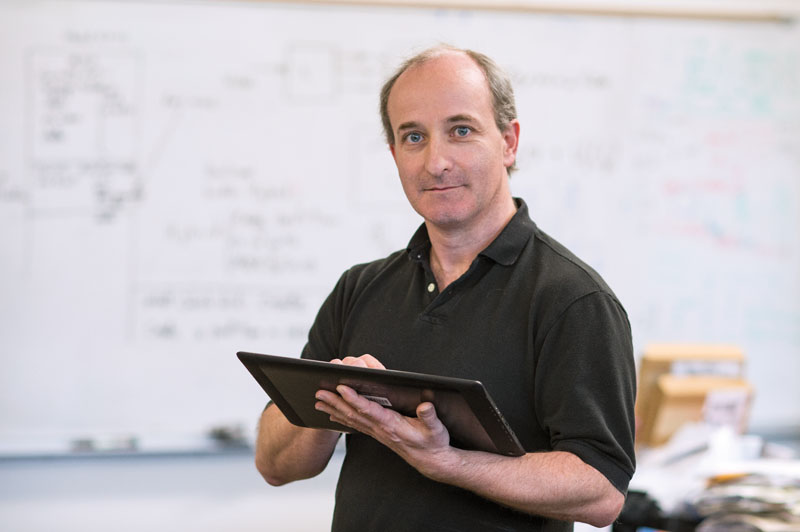cruising
Right Place, Right Time
New software system to benefit military veterans using driverless cars

Manfred Huber
Soldiers with brain injuries may soon have a new option for receiving important medical treatment—a date with a driverless car.
Computer science and engineering Professor Manfred Huber is leading efforts to design a reservation/reminder software system as part of a project to transport veterans on military bases to doctors’ appointments using driverless cars.
“We’re designing the system to be accessible through an android cellphone app or kiosk at a stop along the route,” says Dr. Huber. “This system will help veterans who might be suffering from traumatic brain injury or post-traumatic stress disorder. It will hopefully get the veterans where they need to be when they need to be there.”
The system allows veterans to provide feedback and could send text reminders about upcoming appointments. Once complete, the Applied Robotics for Installation and Base Operations project prototype will be installed at Fort Bragg in North Carolina.
Huber says working in the controlled environment of an Army base is ideal because there are fewer variables. “Driverless systems are here. It’s just that integrating them into the common, everyday street system will be difficult,” he explains. “A driverless car can see a ball bouncing into the street but doesn’t yet have the insight to know that a child might be chasing the ball.”
Other researchers on the project include computer science and engineering Professor Gergely Zaruba and electrical engineering Associate Professor Dan Popa.

















